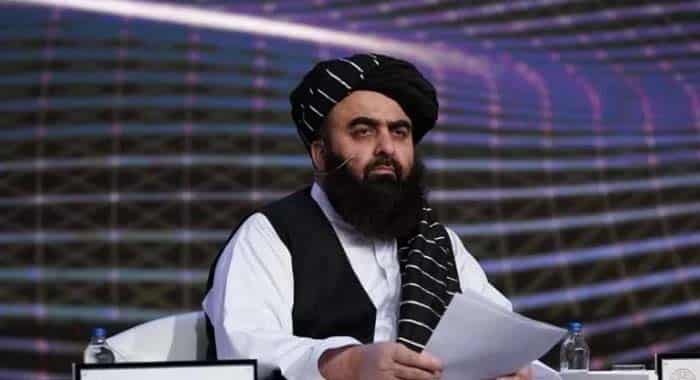Taliban supreme leader Hibatullah Akhundzada has issued “special directives” to Foreign Minister Amir Khan Muttaqi ahead of his planned visits to India and Russia, in what observers describe as a desperate attempt by the isolated regime to project diplomatic legitimacy while continuing to oppress its own citizens.
According to two sources, including one from Akhundzada’s office, Muttaqi travelled to Kandahar on Friday to meet the Taliban leader, who governs from behind closed doors and maintains absolute control over all major decisions. The sources said Akhundzada’s instructions were “strict and non-negotiable,” reflecting his distrust of even senior ministers and revealing growing paranoia within the Taliban’s leadership circle.
The United Nations Security Council has temporarily lifted travel restrictions to allow Muttaqi to visit New Delhi from October 9 to 16 under Resolution 1988, but it made no mention of any travel to Russia. The exemption follows months of international debate over whether Taliban officials—responsible for systematic human rights violations—should be granted the privilege of global engagement.
Human rights advocates have denounced the decision, warning that countries interacting with Taliban leaders risk legitimizing one of the world’s most repressive regimes. “Superficial engagement gives the Taliban a free pass,” said Afghan rights defender Seema Noori. “They continue to silence women, persecute minorities, and rule through fear while pretending to be a government.”
Since their return to power in 2021, the Taliban have banned girls’ education, erased women from public life, and imposed a system of governance rooted in intimidation and ideological extremism. International organizations have repeatedly documented arbitrary detentions, torture, and extrajudicial killings carried out under their rule.
Analysts say the Kandahar meeting underscores the regime’s contradictions—seeking global legitimacy while refusing to respect even the most basic human rights. “Akhundzada’s iron-fisted control shows that the Taliban have not changed,” one Kabul-based observer said. “Their so-called diplomacy is nothing more than an attempt to mask repression with rhetoric.”
Despite promises of moderation, the Taliban’s leadership remains dominated by hardliners resistant to reform. The group’s engagement with India and Russia is widely seen as a public-relations manoeuvre, not a genuine shift in policy. Behind closed doors, sources say, Akhundzada’s orders to Muttaqi are meant to ensure that every statement and handshake abroad serves only the interests of Kandahar’s clerical elite—not the Afghan people.
As the Taliban prepare for foreign visits under the shadow of international sanctions, critics warn that the world must not mistake diplomatic travel for transformation. The regime’s actions at home—marked by gender apartheid, suppression of dissent, and denial of basic freedoms—remain a stark reminder that beneath the language of diplomacy lies the same machinery of tyranny that has defined the Taliban from the start.





